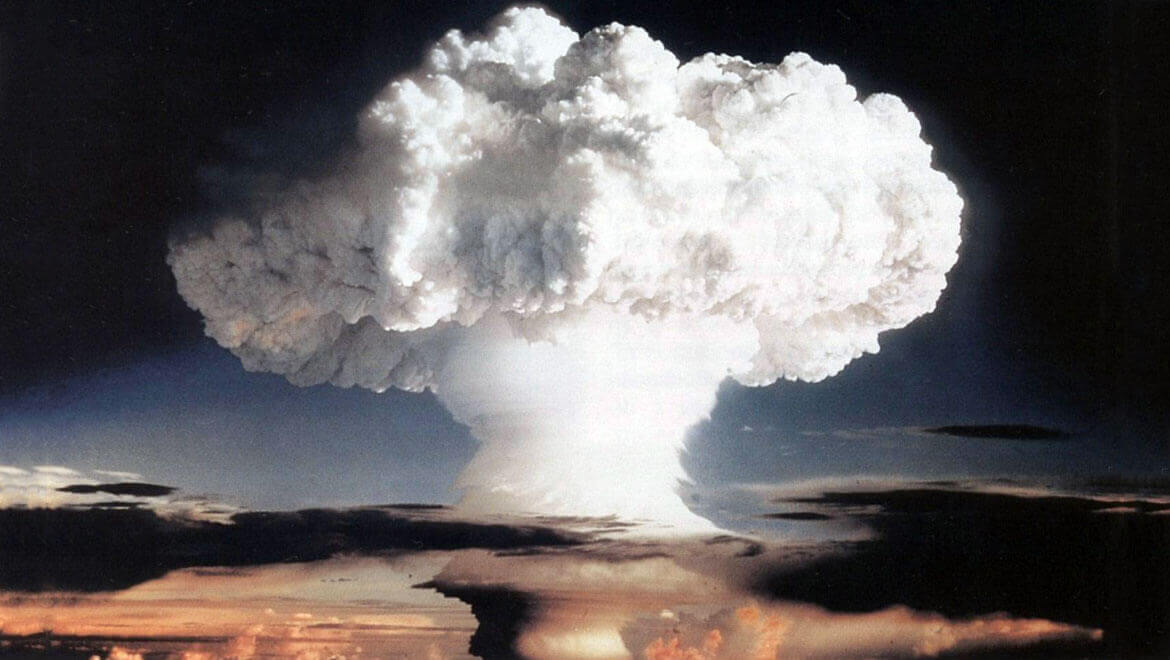The first multilateral nuclear disarmament treaty in more than two decades came into force just after midnight on Friday.
The Treaty on the Prohibition of Nuclear Weapons (TPNW) is now a part of international law and provides a comprehensive set of prescriptions for states participating in nuclear weapons activities, including undertakings to not develop, produce, test, possess, acquire, stockpile, or use (or threaten to use) nuclear weapons.
Signatories are also prohibited from allowing other states to station, install, or deploy nuclear weapons and other nuclear explosives in their sovereign territory. In addition, parties are obligated to provide assistance to victims and help with environmental remediation in case of destruction caused by the use or testing of nuclear explosives. Lastly, the treaty does not include its own verification process; rather, each state party is mandated to maintain existing safeguards as per agreements with the United Nations’ (UN) nuclear watchdog, the International Atomic Energy Agency (IAEA) and encourages those who do not already have agreements to at least enter a Comprehensive Safeguards Agreement with the body.
The treaty received its required 50th ratification on October 24, triggering a 90-day period before its entry into force on January 22.
Though it is being hailed as “an important step towards a world free of nuclear weapons,” one challenge, however, still remains. None of the nine nuclear weapons states (US, Russia, UK, China, France, India, Pakistan, Israel and North Korea) have signed the accord. When the treaty was first approved by the United Nations General Assembly (UNGA) in July 2017, it did not find support in the 30-nation-strong North Atlantic Treaty Organisation (NATO) either.
Also read: Nuclear Weapons States Need to Join the New Prohibition Treaty. Here’s Why.
Last month, the alliance again pointed to the inadequacies of the agreement, saying that without “any rigorous or clear mechanisms for verification,” the treaty would “not result in the elimination of a single nuclear weapon.” NATO chief Jens Stoltenberg also noted that “giving up our deterrent without any guarantees” that others would follow suit was a “dangerous option.” The alliance has said that the “only credible path to nuclear disarmament” is the Treaty on Non-Proliferation of Nuclear Weapons (NPT), which aims to prevent the spread of nuclear weapons, and foster international cooperation between nuclear and non-nuclear states to prevent proliferation.
Similarly, Japan, which is the only country in the world to experience nuclear attacks, has voiced opposition to the agreement, questioning its effectiveness, given the absence of nuclear weapons states as signatories. While it renounces the use and possession of nuclear weapons, Japan has also repeatedly warned that such a treaty could potentially make things worse, deepening the divide between nuclear and non-nuclear states.
Nevertheless, experts have said that the agreement is a historic step towards disarmament. Daryl Kimball, executive director of the Arms Control Association told AP that he hopes the treaty will “compel renewed action by nuclear-weapon states to fulfil their commitment to the complete elimination of nuclear weapons.”
UN Secretary-General Antonio Guterres also welcomed the agreement, saying: “Nuclear weapons pose growing dangers, and the world needs urgent action to ensure their elimination and prevent the catastrophic human and environmental consequences any use would cause. The elimination of nuclear weapons remains the highest disarmament priority of the United Nations. The Secretary-General calls on all States to work together to realize this ambition to advance common security and collective safety.”
52 nations have ratified the treaty so far. They include:
- Antigua & Barbuda
- Austria
- Bangladesh
- Belize
- Benin
- Bolivia
- Botswana
- Cambodia
- Cook Islands
- Costa Rica
- Cuba
- Dominica
- Ecuador
- El Salvador
- Fiji
- The Gambia
- Guyana
- Holy See
- Honduras
- Ireland
- Jamaica
- Kazakhstan
- Kiribati
- Laos
- Lesotho
- Malaysia
- Maldives
- Malta
- Mexico
- Namibia
- Nauru
- New Zealand
- Nicaragua
- Nigeria
- Niue
- Palau
- Palestine
- Panama
- Paraguay
- St Kitts and Nevis
- St Lucia
- St Vincent & Grenadines
- Samoa
- San Marino
- South Africa
- Thailand
- Trinidad & Tobago
- Tuvalu
- Uruguay
- Vanuatu
- Venezuela
- Vietnam

